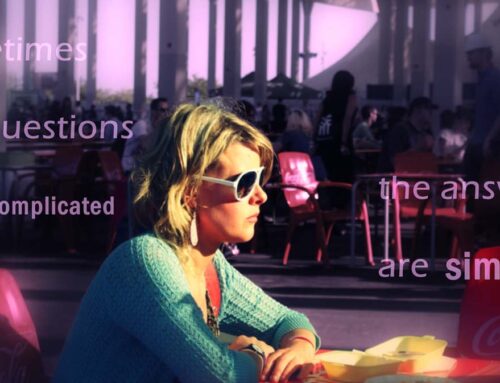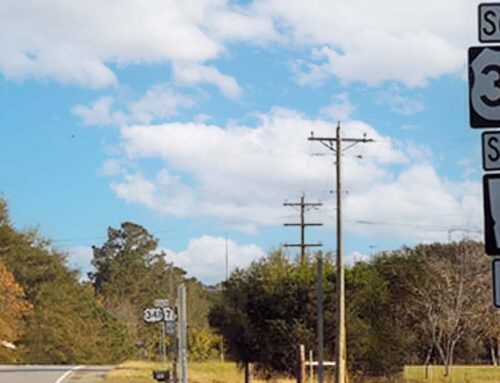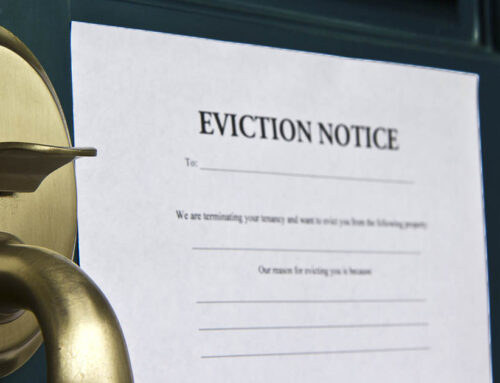At some point, everyone loses their job and has to rely on unemployment insurance benefits to make ends meet. In California alone, over 55,000 people were laid off in the last six months of 2022.
But what happens when you receive an overpayment notice from the California Employment Development Department?
First, take a deep breath and know you’re not alone. Though millions of Americans struggle with debt, bankruptcy provides a legal way to get a fresh start and a path toward financial stability. With that as a backdrop, let’s talk about how filing for bankruptcy can help you resolve your overpayment of unemployment insurance benefits and get back on your feet.
Discharging Overpayment of Unemployment Insurance Benefits in Chapter 7 Bankruptcy
Most consumer bankruptcy cases are filed under Chapter 7, often called “liquidation bankruptcy,” because it involves selling assets to pay off creditors in exchange for being relieved of most debts. However, not all assets are subject to liquidation. Many people can keep their homes, car, and personal belongings through a process known as “exempting” property.
To qualify for Chapter 7 bankruptcy, you must pass a “means test.” This test compares your income to the median income for a household of your size in California. If your income is below the median, you’ll likely qualify for Chapter 7. If your income is above the median, you may still be able to file for Chapter 7, but you’ll need to provide additional information to the court to determine whether you qualify.
Can your overpayment of unemployment insurance benefits be discharged in Chapter 7 bankruptcy? The answer is… it depends.
In general, most types of unsecured debt can be discharged in Chapter 7 bankruptcy. Unsecured debt refers to debt that isn’t tied to collateral, such as credit card debt, medical bills, and personal loans. However, there are certain circumstances under which a debt may not be dischargeable, including fraud or misrepresentation, willful and malicious injury, and other factors.
When it comes to overpayment of unemployment insurance benefits, the critical factor is whether the overpayment was due to fraud or misrepresentation. If the California Employment Development Department believes that you intentionally misrepresented your eligibility for benefits, they may argue that the debt is nondischargeable. However, if the overpayment resulted from an error or misunderstanding, it may be dischargeable in bankruptcy.
In short, whether your overpayment of unemployment insurance benefits can be discharged in Chapter 7 bankruptcy depends on the specific circumstances surrounding your case. Many of my bankruptcy clients hire me when confronting an unemployment overpayment. I understand how important it can be to assess your options and determine the best solution.
Why EDD Benefits May Not Be Dischargeable in Chapter 7 Bankruptcy
Fraud or misrepresentation is one reason your EDD debt for an unemployment overpayment might be nondischargeable. However, this isn’t the sole reason you could remain liable for the debt after your Chapter 7 bankruptcy is over. They include the following:
- Fraud or Misrepresentation: The overpayment won’t be discharged in your Chapter 7 case if the California Employment Development Department has determined that you intentionally misrepresented your eligibility for benefits. This could include providing false information on your initial application or failing to report income or work that would affect your eligibility for benefits.
- Criminal Conduct: If you were convicted of a crime related to the overpayment of unemployment insurance benefits, such as fraud or theft, the debt would be deemed nondischargeable in Chapter 7 bankruptcy.
- Fines, Penalties, or Restitution: If you were ordered to pay fines, penalties, or restitution as part of a criminal sentence or civil judgment related to the overpayment of unemployment insurance benefits, this debt wouldn’t be discharged in your Chapter 7 bankruptcy.
It’s important to note that even if your overpayment debt is deemed nondischargeable in Chapter 7 bankruptcy, all hope is not lost.
Using Chapter 13 Bankruptcy to Resolve Unemployment Overpayments
If your overpayment debt is not dischargeable in Chapter 7 bankruptcy, you should consider using Chapter 13 bankruptcy to help you restructure your debt and create a repayment plan that fits your budget. Chapter 13 is also useful if you have significant assets you’d like to keep or if your income is too high to qualify for Chapter 7 bankruptcy.
Chapter 13 bankruptcy provides flexibility beyond what’s offered by Chapter 7. Not only does Chapter 13 bankruptcy protect you from creditors, stopping collection efforts and lawsuits against you, it allows you to catch up on your mortgage or car loan so you don’t lose your home and vehicle.
Chapter 13 is particularly helpful for resolving nondischargeable debts such as unemployment insurance benefit overpayments that may be nondischargeable for one of the reasons I just discussed. The overpayment of unemployment insurance benefits can be repaid over 3-5 years in a Chapter 13 repayment plan, preventing further interest and penalties.
Bankruptcy Offers Options for Tackling Unemployment Overpayments
You don’t need to carry the burden of an overpayment of unemployment insurance benefits. Whether your circumstances call for a discharge of the debt in Chapter 7 bankruptcy or a Chapter 13 repayment plan, you have options for dealing with this debt. Taking the first step by scheduling a Planning Session will provide you with reliable advice and guidance to help you make informed decisions about your financial future.
Remember, filing for bankruptcy can be a positive step toward rebuilding your financial life. It can provide protection from creditors, eliminate or reduce certain debts, and give you a fresh start. So, don’t be discouraged by your current financial situation. With the right help and guidance, you can get back on track and start living the life you deserve.
ABOUT THE AUTHOR
Meet Jay
 Since I became a lawyer in 1995, I’ve represented people with problems involving student loans, consumer debts, mortgage foreclosures, collection abuse, and credit reports. Instead of gatekeeping my knowledge, I make as much of it available at no cost as possible on this site and my other social channels. I wrote every word on this site.
Since I became a lawyer in 1995, I’ve represented people with problems involving student loans, consumer debts, mortgage foreclosures, collection abuse, and credit reports. Instead of gatekeeping my knowledge, I make as much of it available at no cost as possible on this site and my other social channels. I wrote every word on this site.
I’ve helped thousands of federal and private student loan borrowers lower their payments, negotiate settlements, get out of default and qualify for loan forgiveness programs. My practice includes defending student loan lawsuits filed by companies such as Navient and National Collegiate Student Loan Trust. In addition, I’ve represented thousands of individuals and families in Chapter 7 and Chapter 13 bankruptcy cases. I currently focus my law practice solely on student loan issues.
I played a central role in developing the Student Loan Law Workshop, where I helped to train over 350 lawyers on how to help people with student loan problems. I’ve spoken at events held by the National Association of Consumer Bankruptcy Attorneys, National Association of Consumer Advocates, and bar associations around the country. National news outlets regularly look to me for my insights on student loans and consumer debt issues.
I’m licensed to practice law in New York and California and advise federal student loan borrowers nationwide.
continue reading





